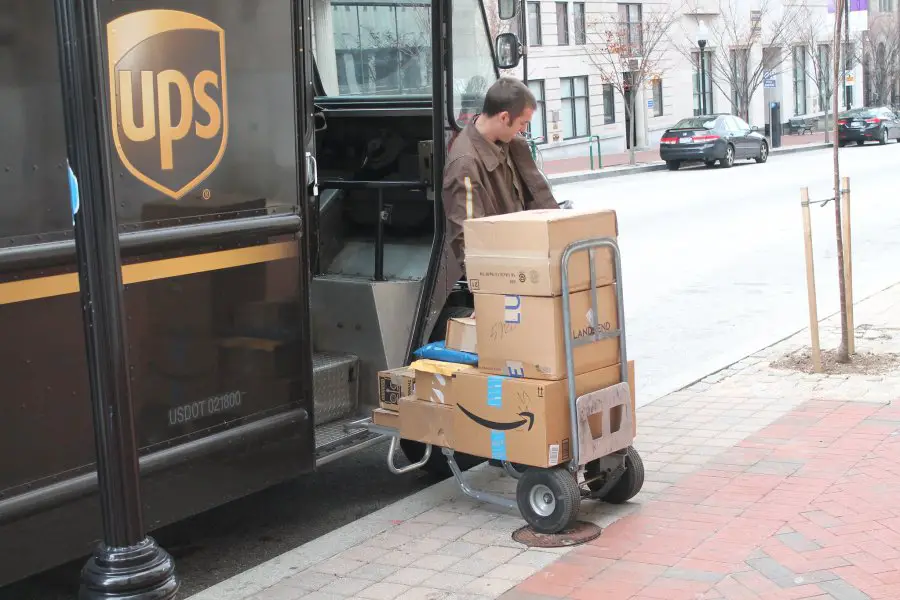Nearly 100,000 UPS Employers Are Helping Fight Human Trafficking
Tags: News

Global logistics giants UPS have trained nearly 100,000 of their workers to help wage in the war against human trafficking.
The courier company first got involved in 2016, when they teamed up with Truckers Against Trafficking (TAT) and UPS freight drivers were trained on how to spot signs of sex trafficking.
This was to help monitor locations such as truck stops and highway motels, which are often ideal transient points for traffickers.
#FBF to the session we hosted with @TatKylla on the prevention of #humantrafficking. We are committed to the fight against it and are partnering to #EndHumanTrafficking by training more than 97,000 of our drivers on how to spot and report it. pic.twitter.com/cjuv2LR0Kq
— UPS (@UPS) February 1, 2019
More recently, in January 2020, the program was expanded to give it more reach into urban and suburban areas, as the drivers who go into neighbourhoods were also put on a human trafficking training program.
“We have now provided training to our entire U.S. driving operations, more than 97,000 drivers and supervisors, including delivery providers and over the road semi-tractor trail,” reads a company statement.
Closer ties with communities
Included in their training will be the recognition of ‘branded tattoos’ on victims.
“It could be the pimp’s moniker, could be ‘Daddy,’ ‘Moneymaker,’” explained Helen Van Dam, who runs UPS’ Freedom Drivers Project.
We are proud to work with @TATKylla, @WellspringATL, @cityofrefugeatl, and @UnitedWay to combat human trafficking through training, education, and awareness. https://t.co/6QvjOO1LSU
— The UPS Foundation (@UPS_Foundation) January 23, 2020
“It puts a different layer on their relationship that we have with our drivers to understand it’s not just about the company. It’s not just about our employees, but it’s truly about our community,” said Danelle McCusker Rees, Human Resources President for UPS’s domestic operations. “This issue impacts everyone.”
UPS’ initiative in fighting human trafficking is admirable. And it’s not the only social upliftment project they’re working on.
“UPS aims to make the world a safer place by leveraging UPS logistics expertise, resources, and philanthropy to enhance the safety and resilience of communities through support of and collaboration with organizations involved in humanitarian relief and resilience, global road safety, human trafficking programs and local community safety initiatives,” reads a statement on their website.
The logistics company have given financial and emergency funding to organizations such as the American Red Cross, World Food Program, UNICEF, Salvation Army, CARE and the United Nations High Commissioner for Refugees.
They have also implemented disaster preparedness programs across the world and have contributed in logistics and supply chain expertise in order to help strengthen public health systems.
Road safety education, access to Higher Education for African American college graduates, and environmental sustainability are just some of the other projects UPS are involved in.
Trafficking on the increase
Sex trafficking is a problem of massive global proportions. It takes a huge amount of manpower, and international cooperation to fight this scourge.
Modern slavery is thought to be on the rise because of a clampdown on the illegal sales of arms and drugs – ‘traffickers have discovered that instead of selling arms and drugs once, human beings can be sold over and over again, making them more profit.’
The International Labour Organization reported in 2016 that an estimated 25 million people were in forced labor, with 5 million of those sexual exploitation victims. Its thought that forced labor generates close to $150 billion in profits per year.
It therefore seems to make a lot of sense for a global company like UPS to lend a hand, to leverage their extensive network to provide additional ‘eyes on the ground’.
Operating via air, sea, ground and rail transport networks, UPS do business in more than 220 countries and territories and employ nearly half a million people.
Read more: Good News For Earth’s Lungs As Indigenous Amazon Group Wins Illegal Tree Logging Case
Image Credit: Elvert Barnes
Leave Comment: